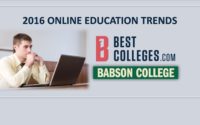
The Effects of Captioning Videos on Academic Achievement and Motivation: Reconsideration of Redundancy Principle in Instructional Videos
The purpose of the present study was to investigate the effect of captioned vs. non-captioned instructional videos on the motivation and achievement. To this end, a pre-test and post-test experimental design was used on 109 sophomores from a Turkish state university. Videos with and without captions of the unit in question were prepared by the […]















